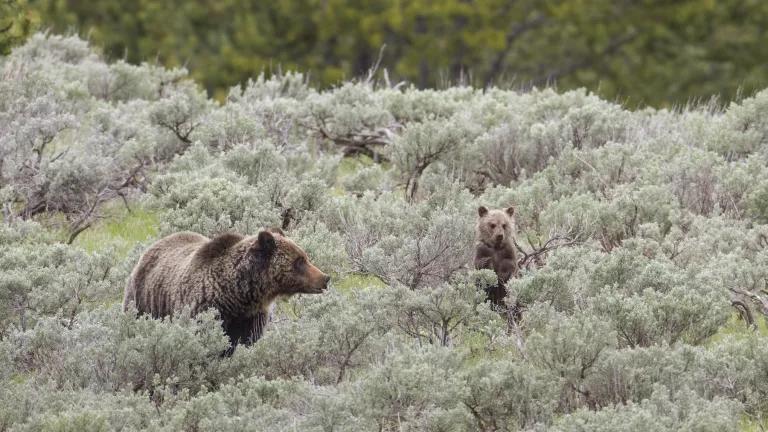NRDC and Allies Sue Trump Administration to Protect Pangolins

The illegal wildlife trade is pushing pangolins toward extinction. The administration must use the Endangered Species Act to save them.
UPDATE: On August 18, 2020, a federal judge approved an agreement that requires the U.S. Fish and Wildlife Service to decide whether it will grant certain protections for pangolins under the Endangered Species Act by June 2021.
Today NRDC and our partners filed suit against the Trump administration to force it to propose Endangered Species Act protections that will help save pangolins from extinction. The lawsuit involves seven of the eight critically imperiled pangolin species; one species, the Temminck’s ground pangolin, is already protected under the act.
In July 2015 several environmental and animal welfare groups sent a petition to the U.S. Fish and Wildlife Service, asking it to list pangolins under the Endangered Species Act. Under the law, the agency was required to either propose protections or find protections “not warranted” by July 2016—three and a half years ago.
In November 2019, NRDC, along with the Center for Biological Diversity, Born Free USA, Humane Society International, and the Humane Society of the United States, sent a Notice of Intent letter asking the agency to respond to the petition within 60 days.
It didn’t. So we’re suing.
Pangolins could be the poster children of the illegal wildlife trade, with one million trafficked between 2004 and 2014 for their scales (used in traditional Asian medicines) and their meat (consumed as a delicacy in some Asian countries). That’s more than 300 pangolins bought and sold every day, making them the most-traded mammals on earth.
The global community has taken important steps to protect these vulnerable creatures, including a 2016 ban on the international commercial trade in pangolin parts under the Convention on International Trade in Endangered Species (CITES). China has signaled it will provide pangolins with the greatest possible protections under its wildlife protection law, thereby preventing the sale and use of pangolins and their products except in certain circumstances, such as scientific research. China also recently decided to stop covering traditional Chinese medicines using state health insurance funds (so those who want medicine containing pangolin scales will have to pay for it themselves).
But pangolin species continue to decline as illegal trade remains rampant, with massive seizures of pangolin parts occurring regularly. Just last year, 28 tons of pangolin scales—harvested from at least 17,000 pangolins—were seized during two busts in Singapore, another 33 tons of scales and bodies were seized in Malaysia, and countless other pangolins have fallen prey to poachers and traffickers.
An Endangered Species Act listing is one of the most impactful ways the United States can help conserve pangolins, because even though they don’t live in this country, their parts definitely end up here. Though Asia is the primary market, at least 26,000 imports of pangolin products were seized in the United States between 2004 and 2013, and a 2015 report by Humane Society International found “medicinal” products containing or likely to contain pangolin parts openly for sale online and in U.S. stores. When I visited the U.S. Fish and Wildlife Service Forensics Laboratory in Ashland, Oregon, a few years ago, taxidermied pangolins, pangolin bodies, bags of pangolin scales, and a scale-encrusted African tribal headdress were among the confiscated items being tested.
If pangolins were protected as endangered under U.S. law, the import and interstate sale of pangolins and their parts would be prohibited in the United States. A listing would also make funding available to further protect the animals via anti-trafficking and habitat conservation efforts, among other avenues. And it would heighten global awareness about the importance of conserving this unique but fragile species.
The United States has been an important leader in pangolin conservation—it led the effort to ban the trade in pangolin parts under CITES, for example—and should continue to offer any and all assistance it can to this vulnerable and disappearing creature. Still, much, much more needs to be done to protect pangolins (see a bunch of examples here), especially by the countries pangolins call home.




